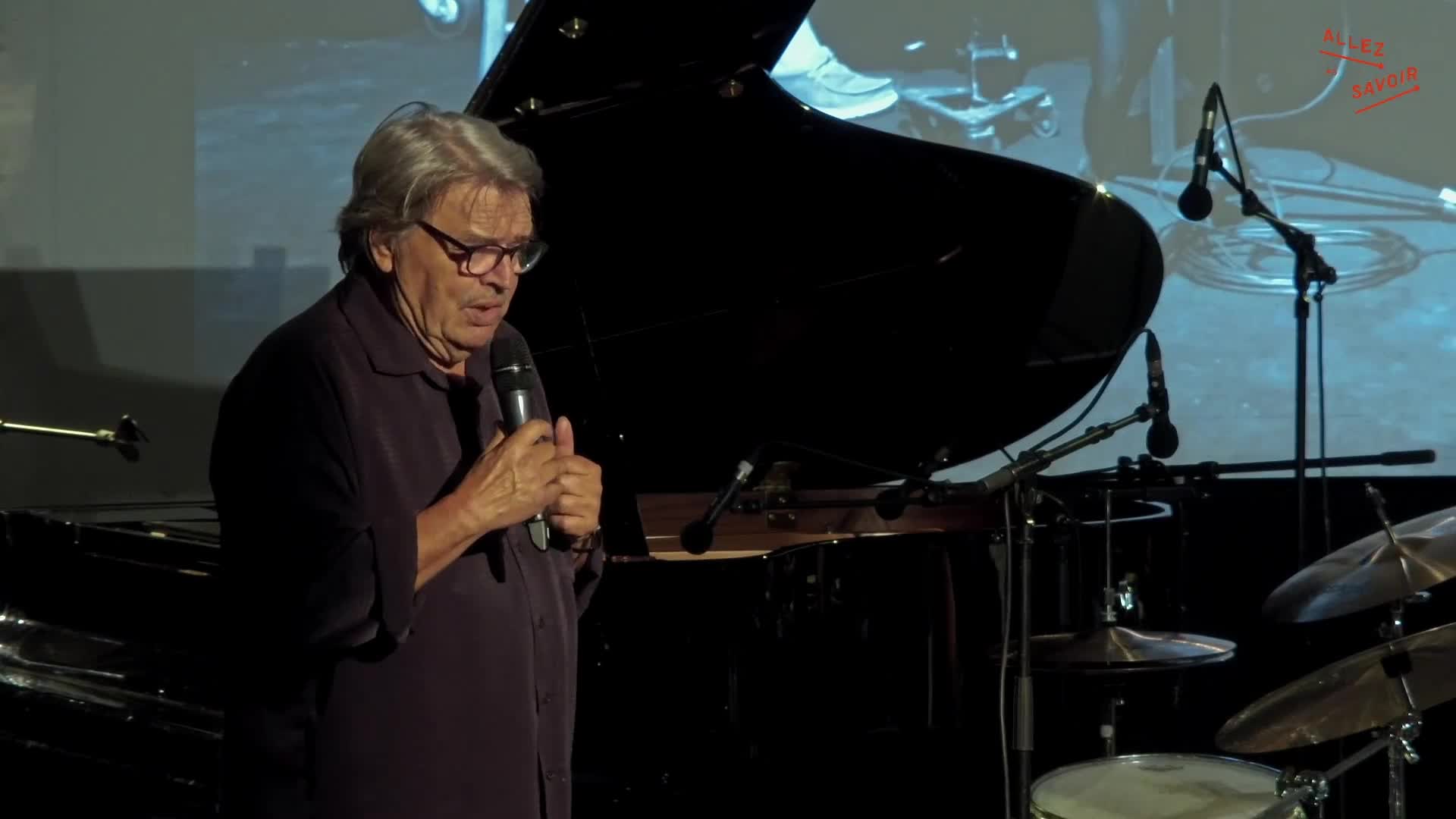Notice
How much do jazz improvisers share understanding with each other and with their listeners?
- document 1 document 2 document 3
- niveau 1 niveau 2 niveau 3
Descriptif
To what extent do collaborating improvisers understand what they are doing in the same way as each other? And to what extent do their listeners understand the improvisation in the same way as the performers? This talk reviews evidence from two case studies (with Neta Spiro and Amandine Pras) of piano saxophone duos, one improvising three versions of a jazz standard (“It Could Happen to You”) and one carrying out an extended free jazz improvisation. In both studies, immediately afterwards the performers were separately interviewed, from memory and prompted by audio recordings, about their detailed characterizations of the performances. Outside listeners (expert musicians in the same genres) were also interviewed for their characterizations. Later, the performers and outside listeners rated the extent to which they endorse danonymized versions of statements by all participants, based on close relistening to the recordings. 239 internet listeners also rated their levels of endorsement of the jazz standard characterizations. In both cases, performers endorsed statements they themselves had generated most often, but they endorsed statements by an outside listener more than their performing partner’s statements. Overall levels of agreement among the performers were greater than chance but quite low. Among the 239 listeners to the jazz standard improvisations, only a very small number agreed with the performers’ characterizations at a level greater than chance. The implication is that fully shared understanding of what happened is not essential for successful joint improvisation, and that performers’ interpretations are not necessarily privileged relative toan outsider’s.
Intervention / Responsable scientifique
Thème
Documentation
Liens
Dans la même collection
-
Joint Improvisation Meetings 2015
We understand joint improvisation as an artistic form involving two or more performers engaging in multiple real-time interactions: with each other, with the audience and with the emerging content.
-
“Quantifying JI” Short talk 1.2: Tommi Himberg - Mirroring improvised hand movements in a dyad
HirataHelena SumikoWe studied coordination and movement kinematics in a mirror game. 32 participants (18 f, 14 m; mean age 25.2 years, range 19–37) performed circledrawing and freely improvised hand movement mirroring
-
“Beneficial JI” - Short talk 2.2: Julien Laroche - Being together when time is improvised: interact…
LarraínPabloImprovising music toghether involves coping in realtimewith unprecedented patterns of behavior of another. The goal is to achieve and share a meaningful coperformance,and this is done by interacting
-
“Improvising together” Debate
“Improvising together” Debate
-
Joint Improvisation in Music and Dance: Some Preliminary Phenomenological Considerationson Improvis…
Magrin-ChagnolleauIvan"I have been a practitioner of soloandjointimprovisationin music and dance for a while. And I have alwayswondered what the main differences were between the two. What I am particularly interested in
-
Carrying the Feeling
ManningErinCarrying the Feeling explores autistic Lucy Blackman’s use of “carrying” as an expressive force in herwriting. Continuing to delve into what I have called autistic perception theforce of perception
-
Improvising Interaction
HealeyPatrickEven the most tightly scripted solo performances involve improvisation; the detailed execution of each note or word cannot be completely determined in advance. In joint performances the challenge of
-
Operationalizing Social Neuroscience through HumanHuman and HumanMachine Interactions
DumasGuillaumeHow are neural, behavioral and social scales coordinated in real time so as to make possible the emergenceof social cognition? Answering this question requires to study the dynamics of coordination in
-
There could be ten seconds where everyone is connected and you feel really joined by the same threa…
CanceCarolineJoint actions require an ability to understand and predict the actions of others far enough into the future to have time to plan and execute matching motor programs. Here I will review experiments in
-
“Quantifying JI” Short talk 1.3: Ashley Walton - Musical Improvisation: Spatiotemporal patterns of …
WaltonAshleyWhen jazz musicians perform an improvisational piece of music their behaviors are not fully prescribed in advance. Nonetheless their actions become so tightly coordinated and their decisions so
-
“Beneficial JI” - Short talk 2.3: Rachel-Shlmoit Brezis - Testing the limits – and potential of joi…
Shlmoit-BrezisRachelResearch on joint improvisation has shown that expert improvisers, as well as neurotypical individuals, canjointly create novel complex motion, synchronized to less than 180ms.
-
Going into the unknown in science and art
KeysersChristianScientists must grope into the undefined place beyond the known. So must improvisation theater actorswalking onto the stage with no idea what will happen next. Improvisation theater developed
Sur le même thème
-
Improvisation musicale désobéissante et festive à Capot ouvert
ChemillierMarcFicquetÉloiImbertRaphaëlLubatBernardL’improvisation musicale obéit à des règles précises, tout en s’ingéniant à en dépasser les limites...














